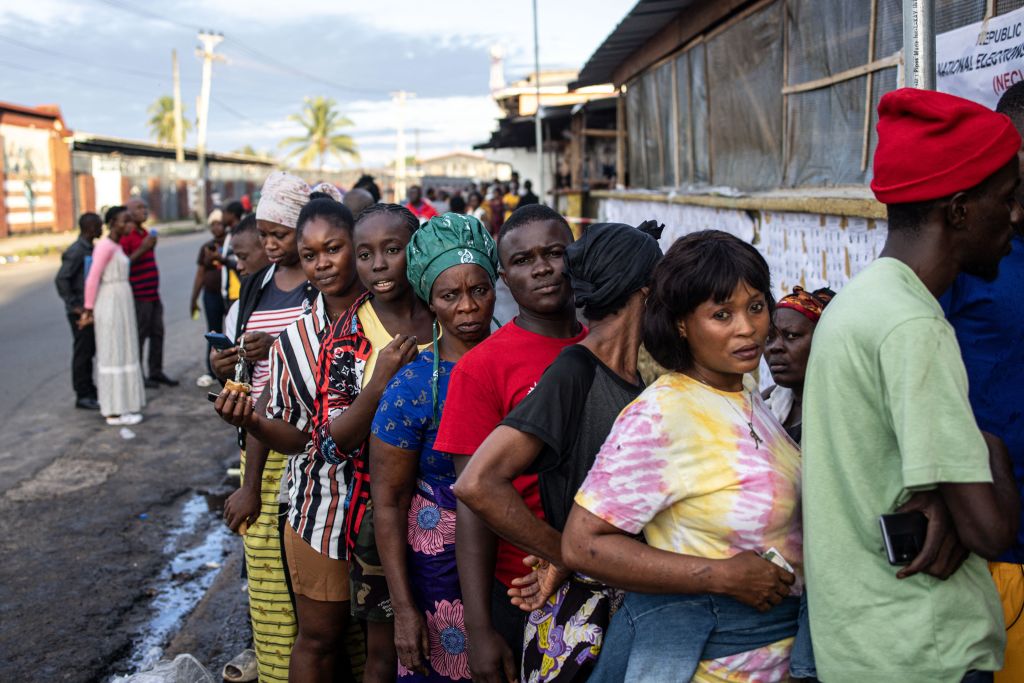ADF STAFF
International observers showered Liberia with praise after the West African nation with a grim history of conflict conducted largely peaceful presidential and parliamentary elections on October 10.
“Liberians were able to freely exercise their constitutional rights,” head of the African Union observer mission Phumzile Mlambo-Ngcuka said in a statement. “In spite of the heightened political atmosphere, the political environment was generally peaceful with minimal violence during the campaign period.”
The calm, orderly affair stood in stark contrast to parts of West Africa and the Sahel where coups have occurred in recent years.
More than 250,000 Liberians died in two civil wars between 1989 and 2003. Its neighbor to the north, Sierra Leone, also had generally peaceful elections in June, reinforcing its similar shift from a dark past to a brighter present.
Alan Doss witnessed and studied the two examples as deputy chief of the United Nations peacekeeping mission in Sierra Leone and later as head of the U.N. mission in Liberia.
As countries that essentially have ended their cycles of violence through leadership, reconciliation, key security-sector reforms (SSR) and outside support, Liberia and Sierra Leone offer important lessons to countries plagued by war, insurgency and military takeovers.
“How have Sierra Leone and Liberia defied the odds to escape the conflict trap?” he wrote in an opinion piece for news website PassBlue.com. “Four factors stand out. The most critical was post-conflict leadership and the legitimacy of government.”
Leadership: Liberian President Ellen Johnson-Sirleaf and President Ahmed Tejan Kabbah in Sierra Leone were internationally respected leaders who won broadly credible elections. Neither flouted their term limits.
“[Both] faced deeply fractured societies traumatized by years of brutal violence and poor governance,” Doss wrote. “They sought to build national cohesion, which their predecessors had conspicuously failed to do. As a result, they gained and retained a large measure of national support and the confidence (and resources) of the international community.”
Reconciliation: To confront the atrocities of its wars, Sierra Leone and Liberia held truth and reconciliation commissions (TRC), which recognized testimony from victims and perpetrators.
“The TRC is critical to make sure you don’t go there [back to conflict],” David Sengeh, the chief minister of Sierra Leone, told The Economist magazine.
Sierra Leone established a special court and successfully prosecuted the “most responsible” offenders, including former Liberian President Charles Taylor.
Liberia did not prosecute any individuals for war crimes. Fearing renewed violence, Johnson-Sirleaf disregarded the TRC’s recommendation to establish a court.
SSR: The success of disarmament, demobilization and reintegration programs for armed groups was a critical step that paved the way to reforming the countries’ security sectors.
Combatants were offered demobilization grants, training and educational opportunities, Doss said.
“Some 180,000 fighters handed in their guns across the two countries,” The Economist wrote in an October 19 article. “But unlike in other conflicts, they were not integrated wholesale into the regular army.”
In Sierra Leone, the army was restructured and downsized, its senior ranks depoliticized. Liberia’s army was disbanded and rebuilt with a Nigerian, Maj. Gen. Suraj Abdurrahman, placed in charge by Johnson-Sirleaf.
Retraining security forces, both military and police, and rebuilding their support structures also were key to achieving stability. In June 2023, 62% of Liberians told pollster Afrobarometer that they trust the army, up from 46% in 2012.
Outside support: Large investments in equipment, training, vetting and logistics were made by partners such as the European Union, South Africa and the United States to support long-term reform goals.
The African Union and the Economic Community of West African States (ECOWAS) collaborated closely with the U.N. on its peacekeeping missions until their mandates were fulfilled.
Despite the helpful blueprints of Liberia and Sierra Leone, experts caution that not all lessons can translate smoothly to larger countries with more complex conflicts and numerous nonstate armed actors.
ECOWAS was able to facilitate positive change in Liberia, but “it can’t do the same in Mali,” Gyude Moore, a former post-war cabinet minister in Liberia, told The Economist.
Religious extremists, insurgents and secessionists are more difficult parties with which to find common ground and compromise.
“Good things take time and unrelenting effort to come to fruition,” The Economist wrote. “For hungry, hopeful people in countries trying to emerge from conflict in Africa that is perhaps the hardest lesson of all.”

